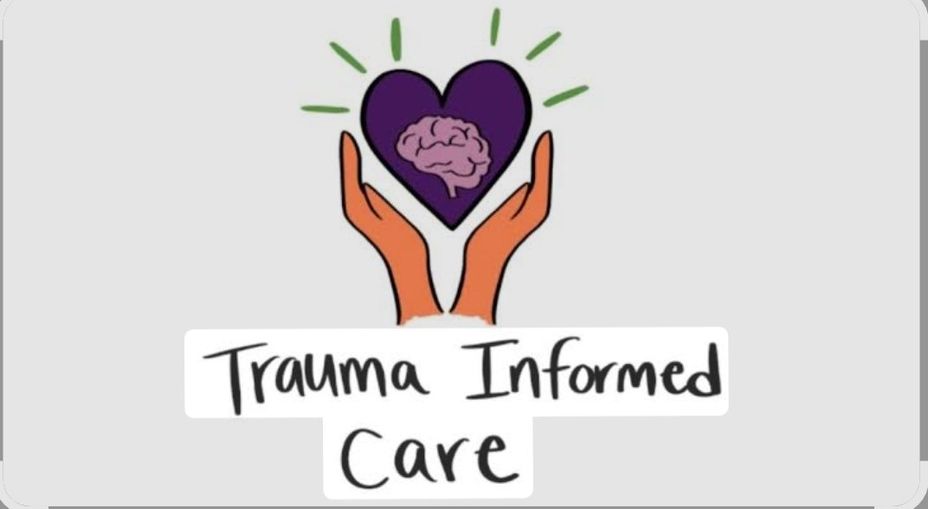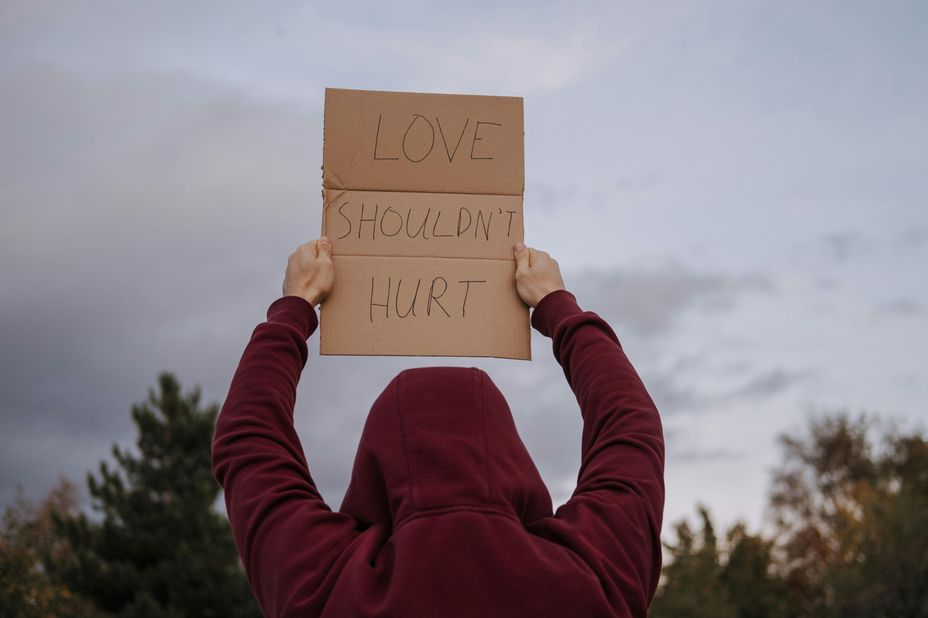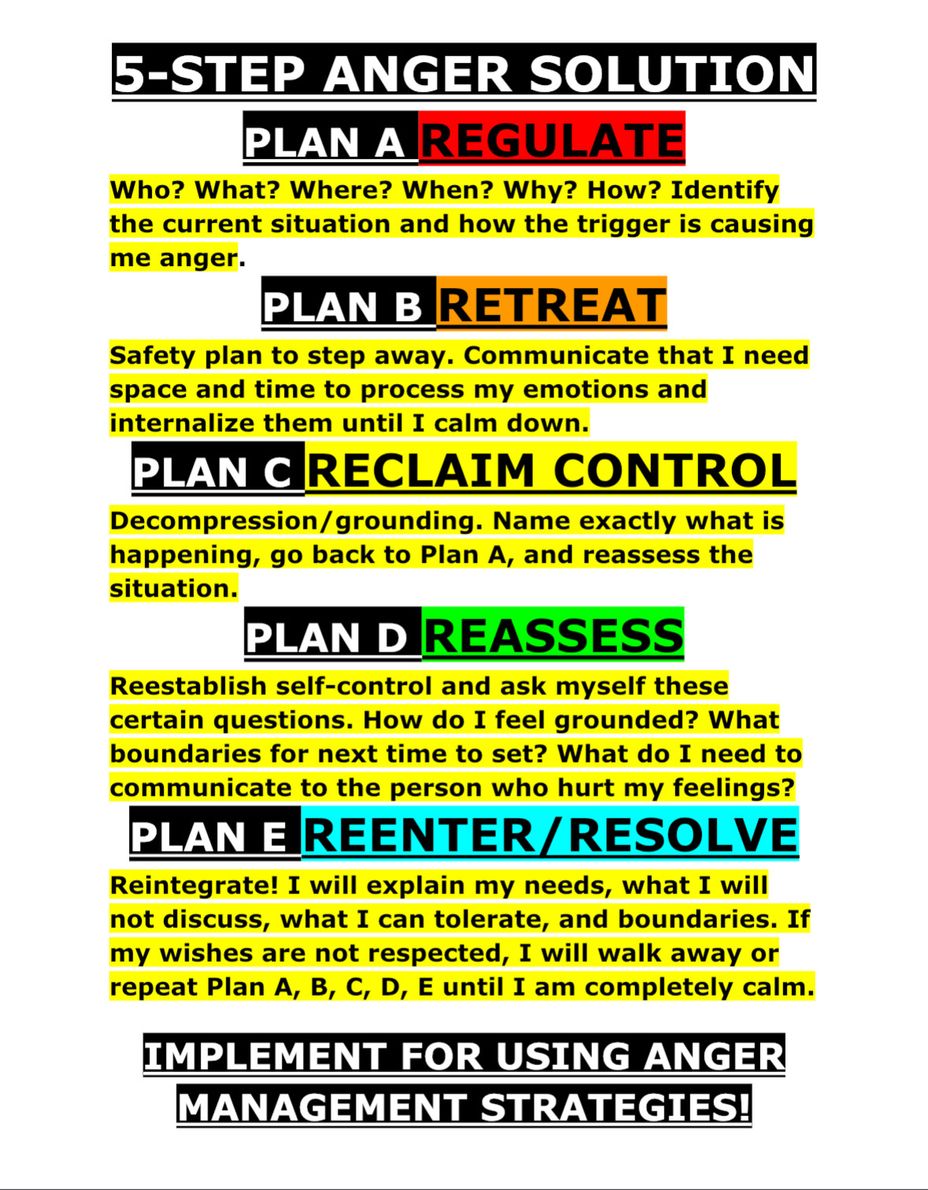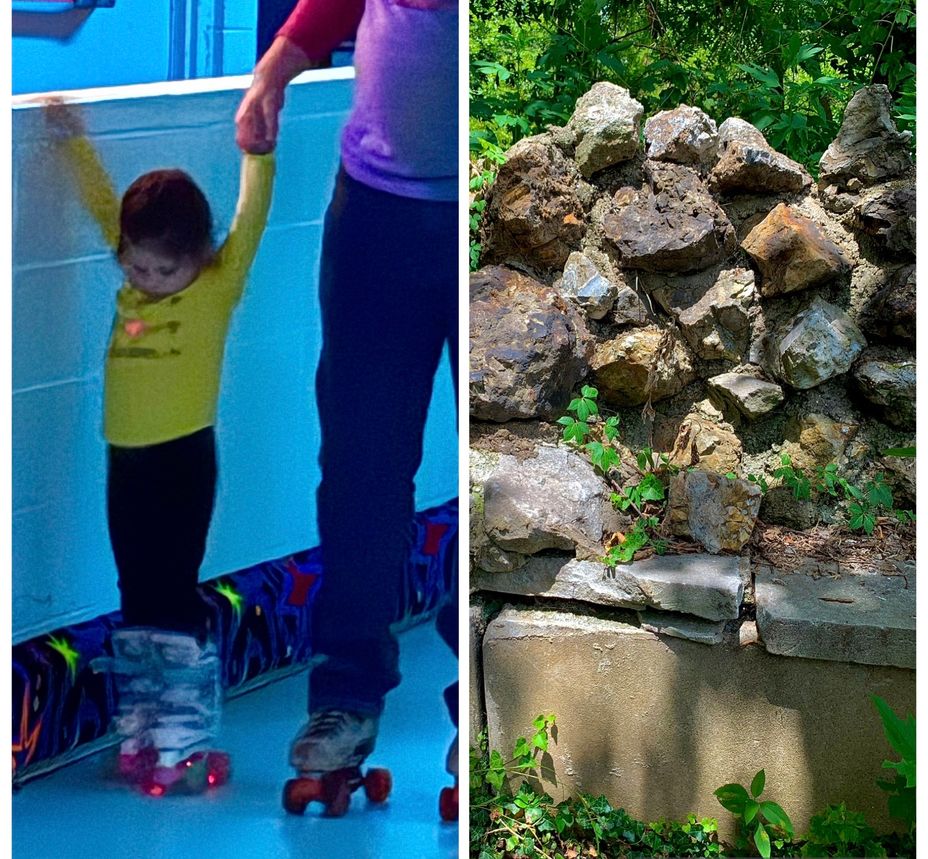A little bit lost #Depression #Anxiety #ADHD #Family #Abuse
Sometimes words are hard.


Child welfare systems exist to protect children from harm. Yet for many children and families, involvement with these systems becomes another layer of trauma rather than a pathway to safety and healing. This paradox is not the result of individual failure—it is the result of systems responding to trauma without being designed to understand it.
Trauma-informed care is not an enhancement to child welfare practice. It is a foundational requirement for ethical, effective, and humane intervention.
Child Welfare Is Inherently Trauma-Exposed
The overwhelming majority of children and families involved in child welfare have experienced multiple, chronic adversities long before a report is ever made. These experiences often include:
*Physical, emotional, or sexual abuse
*Chronic neglect
*Exposure to domestic violence
*Parental substance use and untreated mental illness
*Poverty and housing instability
*Systemic racism and discrimination
*Intergenerational and historical trauma
*Separation from caregivers, siblings, culture, and community
Research consistently demonstrates that child welfare–involved populations have significantly higher Adverse Childhood Experiences (ACEs) scores than the general population, placing them at increased risk for lifelong physical, emotional, and relational difficulties (Felitti et al., 1998; Anda et al., 2006).
Without a trauma-informed framework, child welfare systems risk responding to trauma symptoms as behavioural problems, rather than as adaptive survival responses.
Trauma Shapes Behaviour, Not Morality
Trauma alters neurodevelopment, particularly when experienced in early childhood. It impacts:
*Emotional regulation
*Stress response systems
*Attachment and trust
*Impulse control
*Cognitive processing
*Sense of safety
In child welfare contexts, these trauma responses are frequently misinterpreted as:
*Defiance
*Aggression
*Manipulation
*Non-compliance
*“Lack of insight” or “poor motivation”
A trauma-informed lens reframes the central question from:
“What’s wrong with this child or parent?”
To
“What happened to them, and what do they need to feel safe enough to change?”
This shift is not semantic—it fundamentally alters assessment, intervention, and outcomes.
System Involvement Can Re-Traumatize
Even when removal is necessary for safety, child welfare involvement is itself a potentially traumatic experience. Children often experience:
*Abrupt separation from caregivers
*Loss of routine, identity, and belonging
*Placement instability
*Repeated retelling of traumatic experiences
*Lack of voice or agency in decisions affecting their lives
Parents experience:
*Shame, fear, and grief
*Loss of autonomy and parental identity
*Heightened surveillance
*Re-activation of their own unresolved trauma
Without trauma-informed care, standard child welfare practices—court processes, compliance-based case plans, rigid timelines—can unintentionally replicate dynamics of powerlessness and control, undermining engagement and long-term safety.
Trauma-Informed Care Improves Outcomes
Evidence-informed trauma-responsive child welfare systems demonstrate:
*Greater placement stability
*Improved caregiver-child relationships
*Increased family engagement
Higher rates of successful reunification
*Reduced use of punitive or coercive practices
*Improved permanency outcomes
Trauma-informed care recognizes that regulation precedes reasoning. When people feel safe, they are neurologically capable of learning, reflecting, and changing.
Fear-based compliance may satisfy short-term system goals—but it does not create sustainable safety.
Reflection: A Child Welfare Lens
As a child welfare professional, I have seen how easily trauma is mislabeled as resistance—and how devastating that misinterpretation can be.
I have watched children punished for behaviours that were, in truth, survival strategies learned in unsafe environments. I have seen parents deemed “uncooperative” when their nervous systems were locked in fight, flight, or freeze. I have witnessed systems demand emotional regulation, insight, and compliance from people who had never been offered safety, consistency, or trust.
Trauma-informed care challenges us—not just to change how we intervene, but to examine how power is exercised within systems.
*It asks us to slow down in systems designed for speed.
*To listen in systems designed for documentation.
*To see humanity in systems trained to assess risk.
Child welfare does not operate in a vacuum. Many families enter the system already failed by mental health services, addiction supports, housing systems, education, and healthcare. By the time child welfare intervenes, the harm is rarely new—it is cumulative.
If we do not practice trauma-informed care, we become another chapter in that harm.
Trauma-Informed Care Is Also a Workforce Issue
Child welfare professionals are exposed daily to secondary trauma. Without organizational trauma-informed practice, workers experience:
*Compassion fatigue
*Burnout
*Emotional numbing
*High turnover
*Reduced decision-making capacity
A trauma-informed system must support reflective supervision, manageable caseloads, and psychological safety for staff. A dysregulated workforce cannot effectively serve dysregulated families.
Equity, Culture, and Historical Trauma
In Canada, Indigenous, Black, and racialized families are vastly overrepresented in child welfare systems. This reality cannot be separated from:
*Colonization and residential schools
*Forced child removals (e.g., the Sixties Scoop)
*Systemic racism
*Intergenerational trauma
Trauma-informed care, when paired with cultural humility and anti-oppressive practice, is essential to preventing the repetition of historical harm under modern policy frameworks.
Without this lens, child welfare risks perpetuating the very injustices it claims to address.
Call to Action
Trauma-informed care must be embedded at every level of child welfare:
*Legislation and policy
*Intake and investigation
*Court processes
*Placement decisions
*Case planning and timelines
*Permanency planning
Workforce development
Children and families do not come to child welfare because they failed.
They come because systems failed them first.
If child welfare is truly about protection, then trauma-informed care is not optional—it is an ethical obligation.
BigmommaJ
#traumainformedcare #MentalHealth #Recovery

Hi, my name is Healinglight.
I’m here because today feels heavy.
Yesterday would have been my anniversary with my abuser. It’s been over two years since I left. Most days I call myself a survivor — and I am. I got out. I rebuilt. I’m standing.
But some days, like today, I feel like I haven’t healed at all.
I feel angry.
Angry at the way he treated me — the manipulation, the gaslighting, the cruelty that slowly chipped away at who I was.
Angry at myself for staying as long as I did. For believing his words. For buying into promises that were never going to be real. For trying harder when I was already exhausted.
And sometimes I’m angry at the people around me who weren’t there when I needed them most. The ones who didn’t see it. Or didn’t want to see it. Or couldn’t hold space for how bad it really was.
I know healing isn’t linear. I know leaving was brave. I know I survived something that could have broken me.
But on days like this, the anger feels loud. And I don’t always know where to put it.
I’m still learning how to be proud of the woman who left, while also forgiving the woman who stayed.
If you’ve ever felt both strong and shattered at the same time, I guess I just want you to know you’re not alone. And maybe I’m not either.
Hi, my name is Healinglight.
I’m here because today feels heavy.
Yesterday would have been my anniversary with my abuser. It’s been over two years since I left. Most days I call myself a survivor — and I am. I got out. I rebuilt. I’m standing.
But some days, like today, I feel like I haven’t healed at all.
I feel angry.
Angry at the way he treated me — the manipulation, the gaslighting, the cruelty that slowly chipped away at who I was.
Angry at myself for staying as long as I did. For believing his words. For buying into promises that were never going to be real. For trying harder when I was already exhausted.
And sometimes I’m angry at the people around me who weren’t there when I needed them most. The ones who didn’t see it. Or didn’t want to see it. Or couldn’t hold space for how bad it really was.
I know healing isn’t linear. I know leaving was brave. I know I survived something that could have broken me.
But on days like this, the anger feels loud. And I don’t always know where to put it.
I’m still learning how to be proud of the woman who left, while also forgiving the woman who stayed.
If you’ve ever felt both strong and shattered at the same time, I guess I just want you to know you’re not alone. And maybe I’m not either.
I got knocked out cold very early yesterday until 6am today. I woke up with an awful tummy ache and I got really sick. I slept through Valentine's day on purpose. I was having double flashbacks yesterday morning and my back was really messed up so I took 2 THC gummies to knock me on my ass.
When I was 20 my boyfriend proposed to me on Valentine's Day. Shortly after he proposed I found out I was pregnant. I didn't plan to keep the baby but I was going to give them up for adoption. His family is Mormon and very strict. When I was 3 months pregnant he beat me and raped me quite hard and he kept pushing my abdomen. At some point he said "you did good. Now go clean up." I waddled to the bathroom... the rest of this story is too gory to share.
When I was just a kid 16 years ago I came out as transgender to my family and my mom beat the shit out of me. My family had a big reunion party at my house on Valentine's Day. One of my cousins said I looked very handsome. I told her I was coming out as transgender and she was so kind. My mom freaked out and punched me in the head and pushed me up against the bathroom wall so she could hit me and scream at me. She started crying and asked me"where did I go wrong!?!"
Later that night I sat behind my dad's bar and I found a glass jug of mogen David. I drank 2 thirds of the jug. Then I had my cousin mix me a screwdriver. I knew my daughter was safe cuz everyone just loved her to pieces. So I went and got my bag and car keys and snuck out and yeah I drove myself to the coffee shop...where my ex fiance was with his new whatever. I realized I couldn't handle seeing them so I wandered outside and went to 7-Eleven next to the coffee shop. I got 30 bucks worth of alcohol which I chugged in my car. My ex and his friends came out, somehow took my keys and my undrunk 4Loco. They shoved me in the car and closed the door. My brilliant idea was to crawl over to the other door... Which I did with about as much grace as a sloth hanging by 1 claw. I face planted. They picked me up and shoved me back in the car. A few minutes later my dad showed up and he was with my sister. They drove me home and I just went right to bed. What happened next?
I got disowned. 16 years ago today. My dad said I was deranged for wanting to have surgery to fix my gender dysphoria. He said I wanted to mutilate my body and he was disgusted by my decision.
So February is a difficult month for me.
I never told anyone about that.
10 years of history between me and Pauley and I never told her. I was trying to forget my past. There was so much violence and trauma during my teens and 20s. I've never known how to detach from my past trauma.
But this is the first valentines day I got triggered so hard in over 12 years. I don't know why. I was hoping to make happy memories this year with Pauley. But I got sick this morning. And then as I was sitting on the toilet I had another flashback about my daughter. So yeah I'm not doing so well.
#SexualTrauma #Abuse #PTSD

I was just diagnosed with autism and ADHD at the ages of four and seven respectively. I had a 504 in place, but no one ever treated me as though I mattered, and they were simply following the law. Most teachers and every single betrayed me in one way or some other. The worst was an ablest teacher in that high school who taught AP World History. I knew this was no different than anyone else, but she completely went overboard with me having to wipe my nose with her around, teaching me apparently outside the classroom. She did not understand my allergies. She infantilized me by sitting me apart from everyone else, and people would stare at me. I felt watched under constant microscope of smothering and suffocating surveillance and freebie answers I wanted instead to find on my own. Yay, 9th Grade was over and so was that textationship for 2-week love-bombing on my side to help a vulnerable/covert narcissist feel more confident in her self-image. I was uplifting, not controlling as she was real control freak. I was publicly humiliated, had my own stuff licked, my own privacy invaded twice (stolen number, using mutual friends’ numbers), and the worst of the worst, being betrayed by the last psycho boyfriend #6 and two women children filing restraining orders over burner accounts I used to get rid of them as in telling them to F*** off. First was a reassurance junkie like I always been especially she bullied, harassed, ostracized, abused, deceived, betrayed, and traumatized me after the first boyfriend incident two years ago. Second was an egregious crybaby, who cannot handle anything but a narcissistic supply of histrionic tendencies for attention in court. I do not say this to cause any scandalous defamation, but to defeat a narcissist, you have five ways to do so. You can black rock them where you really go AWOL and have no contact whatsoever. If the situation requires you to be present with them, be a gray rock. Look as unassuming and as boring as possible. One-wording, but not yessing everything they say, but giving a nod, shrug, or “K” that does not give them at all, if not very little ammunition. It drove the last call crazy before she flipped the scenario on me and reversed the entire story projecting her insecurities. She embellish the truth to the judge and made up lies. What we and the judge did was give in to her so she could just shut up. Then, he took out all her accusations on the worst kind of mutual restraining order in my life. Also you can give a narcissist way too much supply. Give them so much power that they have no idea what to do with that. Overwhelmed their ego to where it falls and breaks them into a narcissistic mortification or collapse. Additionally, mirror their actions. A narcissist may act like they love themselves, but they have no internal validation, which is why they rely on that narcissistic supply. if it is possible, the one thing they despise most is themselves, which is why they require others to understand them and feed into their nasty behaviors to enable them and justify just how they act when they know deep down it could be wrong. Help them base their own demons by showing them exactly how they treat you. Ostracize them from your life and cut them out like they did to you in the discard phase. Here, however, this is the most dangerous technique on dealing with a narcissist. Use it very sparingly and only a last resort. The big whole smear campaign and proxy wars. If you must, you can turn everything they have said against them and twist their words exactly as they do to yours to gaslight, victim-blame, or neglect your needs. Never allow them to be that close to you. Know at any second you can sue them right after you broke down their walls and infiltrated them so much they are in infatuated with you and they will not fight for themselves. Make them just love-bomb you so much that they do not care if you go to court and will not retaliate. That was the last strategy for how I deal with narcissists but I’ve never gone to court over them before. I do allow myself to black rock them most of the time and have them learn to embarrass themselves on their own because they are extremely good at humiliating who they are and destroying their identity when faced with new adversity in the highest form of a mess they created not me or you or anyone but themselves. Let them dig their own social grave. You can’t fix stupid, but you can let it break someone. Not that that’s nice, but if you need to step away and walk away forever for your life, that is your own prerogative and volition. If you feel you are in a abusive toxic relationship, do not hold back. Never let them devalue you and then worship you as if a goddess or God. They love to suck up to their authorities and create institutional pity. They can abuse their own power and influence to control you, but I never let them. They never knew behind the scenes. I was always the one controlling them to make them head to the extremes and destroy themselves so much that they will never come back from it. I never lost my power, but for those who have, take it back! Show they how strong we all are as one unified front on the Mighty! If anyone needs any pointers, I am always available to talk. I, too, am gifted at art as well. If you would like to be taught in any way or form I would do it completely cost free out of the kindness of my heart, you can ask me for that as well. I hope my blog gives you bliss. Below is a strategy on how to manage anger I learned from 988 and it has worked miracles in my life just like the WRAP (wellness, recovery, action plan). Make your own strategies and learn to help me help you through my insights. Take this from a dark empath that fights behind the scenes to try and protect those I care about, which is now everyone in this community who deserves to be treated with humanity and not cruelty. I hope my message finds you well! Enjoy!
I HADDAYS of extreme abuse n assault this week, , Bipolar Mania Support would be good, crisis hotlines n such n Sponsors, but sometimes it's too hard, Ease up, it's better now, I don't understand n just don't want to be anyone's Beast of Burden, please don't damage those you could instead love, they all may leave this God Given Green Earth for Hell, for 3 days or forever, you have your own conscience, Please be careful, Please, it's Better now, Stand up for your Rights, Help, or if it's too hard take it, you know, abuse so sucks

My four-year-old granddaughter went roller skating for the first time over the weekend. No matter what, she would not let go of that wall. It was her security. I completely understood. When I was a little girl, there was a rock wall behind our house in the alley. When abuse was coming, I’d do my best to run and hide behind that wall. They never found me there. Safe. It protected me. A few years ago, I drove back to that neighborhood. To that spot. To the wall. It wasn’t as big as I remembered. The photo on the right is that very wall. It still stands. I’m thankful I don’t need it anymore. I formed a trust in my therapist. He led me toward a freedom I had never known.
Much like me, my granddaughter will grow confidence through love and patience. One day, she’ll let go of that wall. She’ll find her own balance. She’ll fly.
On Friday I had a particularly nasty realisation about early childhood abuse and its impact on my life these days. Yesterday I spent the whole day lying on the sofa with my back to the room, unable to interact with anyone. This morning my wife on her way out to church with the kids asked me if I was safe. I said I don't know. She came towards me and I started crying. I confessed to her that I was planning to take an overdose while she was out. For the first time in my life I knew I absolutely intended to do it. She's stayed at home with the kids and I've spoken to a crisis helpline. I don't want her to have the extra hassle or to take my burdens on herself. I want her to go because I'm too frightened to have anyone around me. I'm sat in the bedroom crying while she looks after the kids downstairs. I've lost all faith in the system and I will never be better. This is my life from now on.
I cheated on my bf two months into our relationship. I was still in contact with my ex and decided to cut ties with him due to my new relationship.
My ex came to my city and chased me. The last night, i went to his airbnb to talk and end this. However, I froze seeing him beg and cry. I had never seen someone so upset for me and I didn’t even know what to do. I didn’t even know what to say because saying i don’t have feelings for you and that there is someone else, didn’t do much. It was the first breakup (mutual) I ever had in my life and i wasn’t expecting this level of emotions. And when he initiated sex, i numbed. I was a virgin and held onto that. But I cracked under pressure. I went home, threw up and cried for weeks.
I reached out for professional help, because i was struggling to hold the weight of what I had done. It didn’t last long due to other reasons. And I avoided telling the truth out of hurting my bf. But that was worse than actually cheating. It made me into a horrible partner. I always argued with him whenever he called me names or accused me, i argued with him when he felt like he couldnt trust me. I always got mad, I ignored him, I made him feel unwanted, I made him feel insecure. I never realised how much of a manipulator i became and when i look back on it, my chest crumbles at what he had to endure. He always fought so hard to keep me close and i pushed him away.
Fast forward a year later, and i moved to my bfs country. And months later, he went through my phone and found out about my ex. It was then i had told him the truth of that night. It was an emotional rollercoaster. He went through everything on my phone. He accused me of being with multiple men, which, is not true. But in the end, he decided he wanted to stay and make it work.
It has been about a month and things are still raw and fresh. He calls me names everyday, tells me im worth nothing, he has closed off emotionally. He doesn’t really seek me unless its to be intimate, which feels like it has increased. He has continuously dangled the idea of bringing women home, women better than me. And says he cannot wait until i feel what he does. He needs to continuously check my phone, sometimes when im sleeping.
Me on the other hand, i’ve become quieter. Ive started therapy. Trying to break down what led me to where I am now. And how to never let something like this repeat. I have a lot of guilt for hurting him. He went from my sweet boy, to one filled with rage and hatred. I just stay quiet and take it, but sometimes the name calling gets a bit much and i fight back and ask him to stop. Most times I just ask if he needs to talk, he will usually push me away, and I will remind him im there if or when he needs me. My mental health is poor, but so is his. I’m trying to be better, with patience, sometimes I fail and have to withdraw if the verbal abuse gets a bit much. I miss my love. I miss how gentle he was. Its one of the things i loved about him. He was so big and rugged but with me he was so gentle and soft. I miss holding him. I miss his smile. I miss the way he laughs. I miss the spark in his eyes and I’m losing hope that he will get it back with me. I know a month is really nothing, but I’ve had to watch him become so cruel, with no fault of his own.
I’m trying my best to keep the both of us up, during this. We don’t talk much throughout the day. Some days we spend time together when hes home. We’ll go out for a meal or something, but right now, feels like anything I do or say bothers him. I’m starting to feel a bit insecure, like i need to completely strip myself away. Maybe I do. I’m still figuring that out. I did ask if hes willing to go to couples therapy and he said yes initially, but then declined when the time came. I’m not so sure we can go back to what we had as its completely overshadowed by my choices. If we can make it work, I hope that we can build something new. Learn how to date each other again. Rebuild that trust and I know it will take time.
I take full accountability for my wrong doings. I’m committed to rewiring the bad traits in me, and understanding where they come from. I never realised how much trauma from my childhood, still played a role in my 20z, especially with intimacy. But this is also my first time in rather invasive therapy and shes good. She gets me to expose the dirty stuff and break them down. As for my boy, I truly love him with my heart. I failed to choose him when it mattered the most and by doing so, I didn’t protect and hold his heart the way I should have. I don’t know if I’ll get him back, not that I deserve it. But I hope I can get to love him properly again, if he lets me. Maybe thats a selfish want, and truthfully so, he deserves better than me. #
I am not writing this to feel bad about myself. I am writing this to let out the pain that comes from hurting your loved ones. It destroys you. It should. If I could go back in time, I’d change it all. I’d love him better. I’d choose him. And we could have been so much further than we are now. I could have given him a happier home. A wife. A family. Everything he wanted. Instead I took it away. I will forever be sorry for it all.